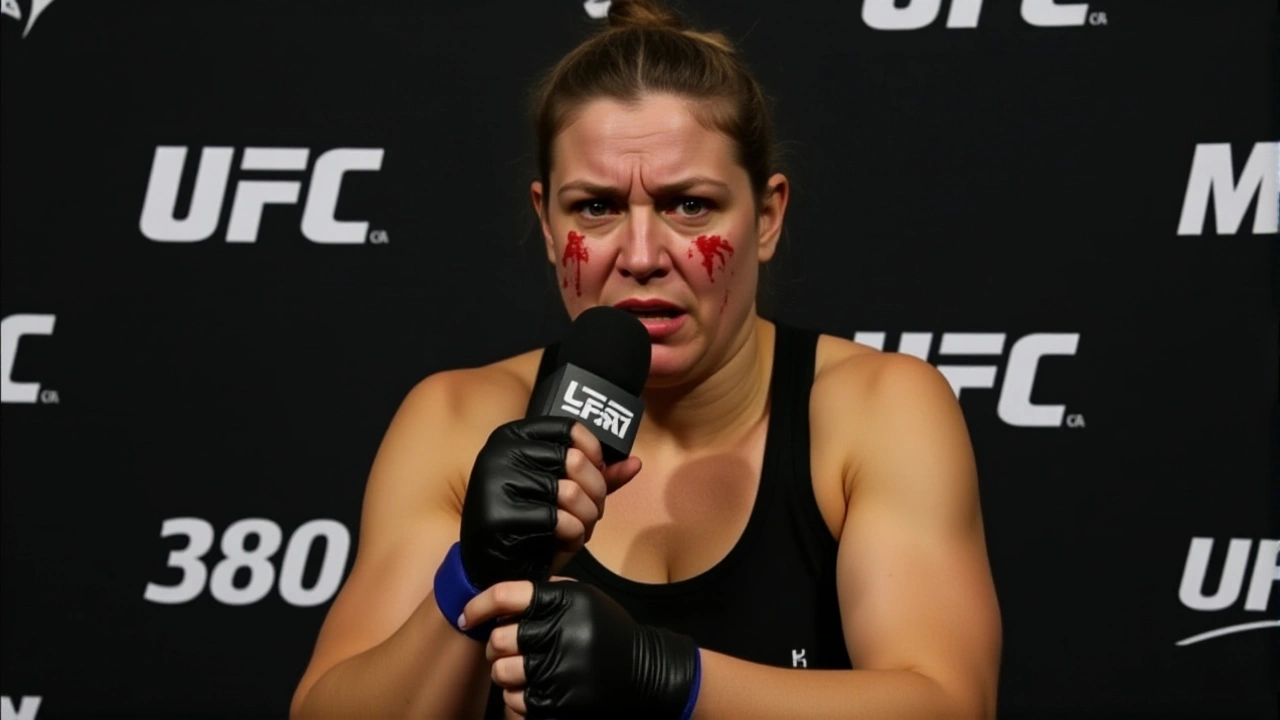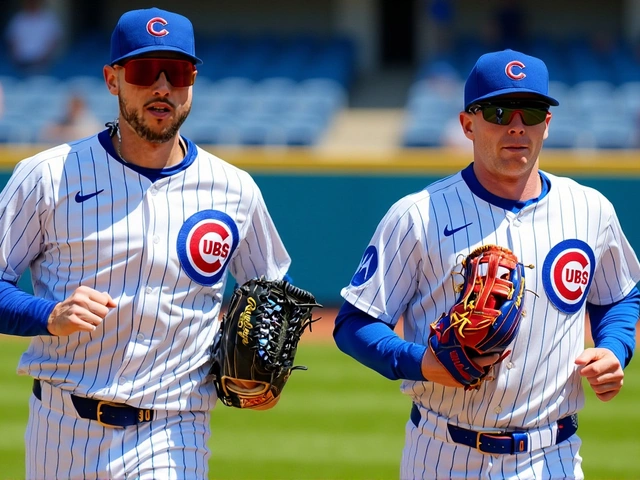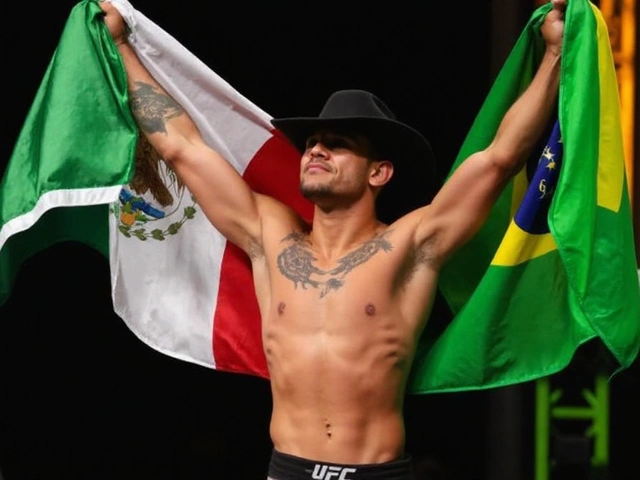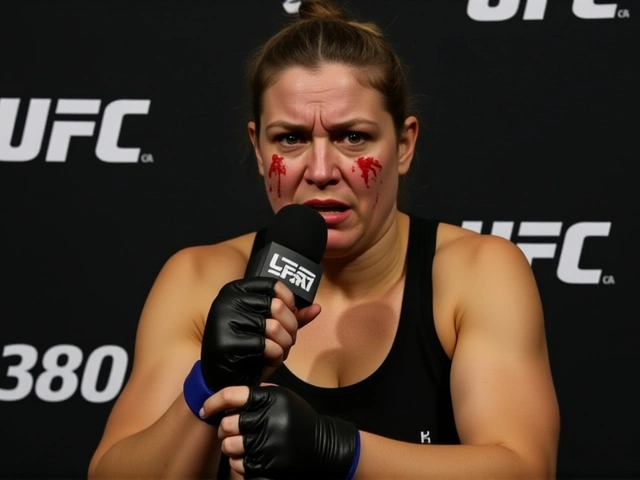When Yana Santos took a unanimous decision over Macy Chiasson at UFC 320Las Vegas, the post‑fight buzz wasn’t just about the win. Santos zeroed in on Chiasson’s failure to make the 135‑pound limit and demanded stricter punishments for fighters who miss weight. The Brazilian’s comments sparked a broader debate about fairness, compensation, and respect in mixed martial arts.
Why the Weight Miss Matters
In the modern UFC, missing weight isn’t just a contractual hiccup; it can tilt the competitive odds. Chiasson entered the cage at 136.8 lb, well over the feather‑weight ceiling, and was fined 30 % of her purse – roughly $45,000 – which went straight to Santos. While the money helped, Santos argued that a cash hit alone doesn’t address the underlying advantage of rehydrating to a higher fighting weight.
According to the Nevada State Athletic Commission, 2024 saw 24 weight‑miss incidents across all major promotions, up from 18 the year before. That 33 % rise has ignited calls for a uniform, tougher penalty system. Santos, who has fought in ten UFC bouts, likened the situation to a “cheat code” that leaves the opponent scrambling.
Post‑Fight Exchange: Respect, Apology, and Frustration
During the immediate press‑conference, Santos told reporters she had asked Chiasson for a brief apology for the miss. “I said, ‘Hey, at least say sorry,’” Santos recalled. Chiasson’s off‑the‑cuff reply – “Well, you got paid for it” – left Santos visibly irritated.
"I respect her as a fighter, but that kind of dismissive attitude hurts,” Santos said, her voice steady but firm. “Money doesn’t erase the fact that you walked into the cage heavier than you were supposed to be.”
Chiasson, who was later approached for comment, said she “didn’t think a short apology was necessary because the fine was already paid.” The exchange has become a touchpoint for other fighters who feel the current system rewards bad behavior with a mere check.
Ranking Implications and Team Dynamics
The win catapults Santos into the feather‑weight division’s top‑five, a spot she’s been chasing for years. “I’m happy that now I probably will be top five,” she said, flashing a quick smile. Yet she made it clear she isn’t eyeing a title fight while her teammate Kayla Harrison holds the championship belt.
“As long as the champion—my teammate Kayla—is on the belt, I’m not looking to fight for the title,” Santos explained. The camaraderie between the two Brazilian fighters, both former Olympians, underscores a growing trend where fighters consider team loyalty alongside personal ambitions.
What Experts Say About Weight‑Cut Policies
Dr. Laura Simmons, a sports‑medicine professor at the University of Southern California, warned that aggressive weight‑cutting can lead to dehydration, reduced cognitive function, and higher injury risk. “When a fighter comes in heavy, they’ve often rehydrated and may have a size advantage, but the real danger is the health of the opponent who might be depleted,” she noted.
Veteran promoter Dana White has previously floated the idea of a tiered fine system: a base 30 % for first‑time misses, climbing to 50 % and a possible fight‑cancellation clause for repeat offenders. Santos’s public push could nudge the UFC to accelerate those discussions.
Broader Impact on the Sport
If the UFC adopts harsher penalties, the ripple effect could reach regional promotions, where weight‑miss incidents are even more common due to limited medical oversight. A stricter regime might also push athletes toward safer weight‑management practices, potentially decreasing the high‑profile cases that dominate fight‑night headlines.
For fans, the debate adds another layer of intrigue. “I love a good fight, but I want it to be fair,” said longtime UFC fan Marco Rivera, who posted on a sports forum, “If a fighter can just show up heavier and still get paid, what’s the point of the weight classes?”
What’s Next for Santos and Chiasson?
Looking ahead, Santos is slated to face Amanda "The Jungle" Lee in a June 2026 bout, a matchup many analysts believe will test her skill set against a fellow top‑five contender. Meanwhile, Chiasson has promised to “tighten the belt” and is expected to return in a rematch against Renee Boudreaux later this year.
Both fighters are now part of a larger conversation that could reshape contract clauses, weigh‑in protocols, and even the way fans perceive legitimacy in the sport.
Frequently Asked Questions
How does Yana Santos’s push for stricter penalties affect other fighters?
If the UFC enforces tougher fines or fight‑cancellation rules, athletes will likely adopt more disciplined weight‑cut routines. It could also level the playing field, preventing fighters from gaining a size edge after missing weight.
What financial penalties did Macy Chiasson face for the miss?
Chiasson was fined 30 % of her $150,000 purse – roughly $45,000 – which was transferred directly to Yana Santos as per Nevada Athletic Commission rules.
Why isn’t Santos pursuing a title shot now?
Santos stated she respects teammate Kayla Harrison, the division’s champion, and prefers not to challenge her while she holds the belt, citing loyalty and team dynamics.
What are the health concerns tied to aggressive weight cutting?
Experts warn that rapid dehydration can impair brain function, increase concussion risk, and cause kidney strain. Rehydrating too quickly may also give a heavier opponent an unfair power advantage.
Will the UFC change its weight‑miss policy soon?
The organization has hinted at a tiered fine system, and Santos’s outspoken stance could accelerate those discussions, but an official policy shift has not yet been announced.





